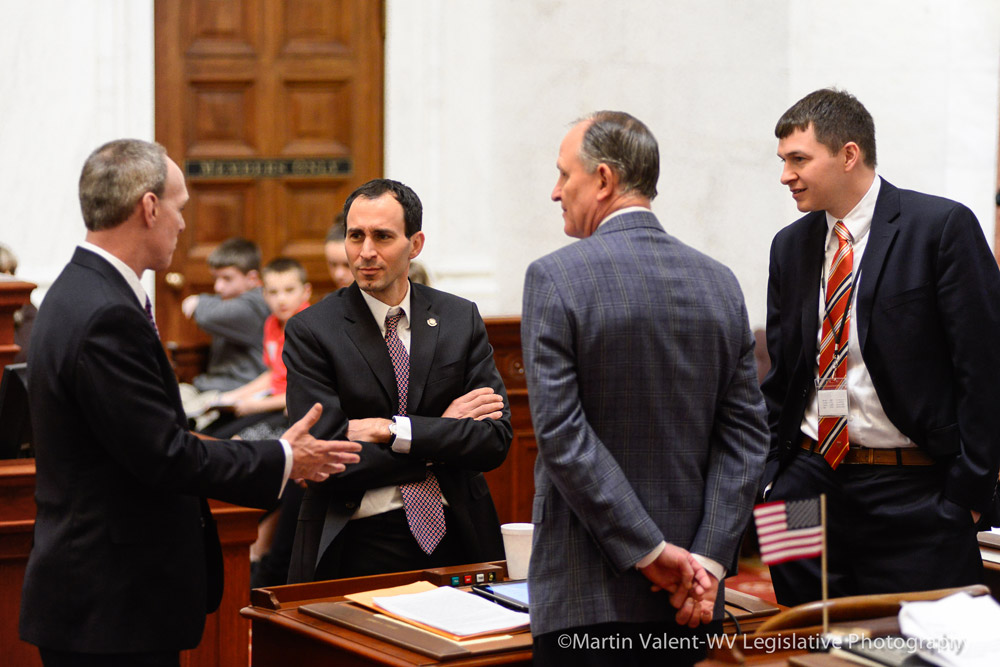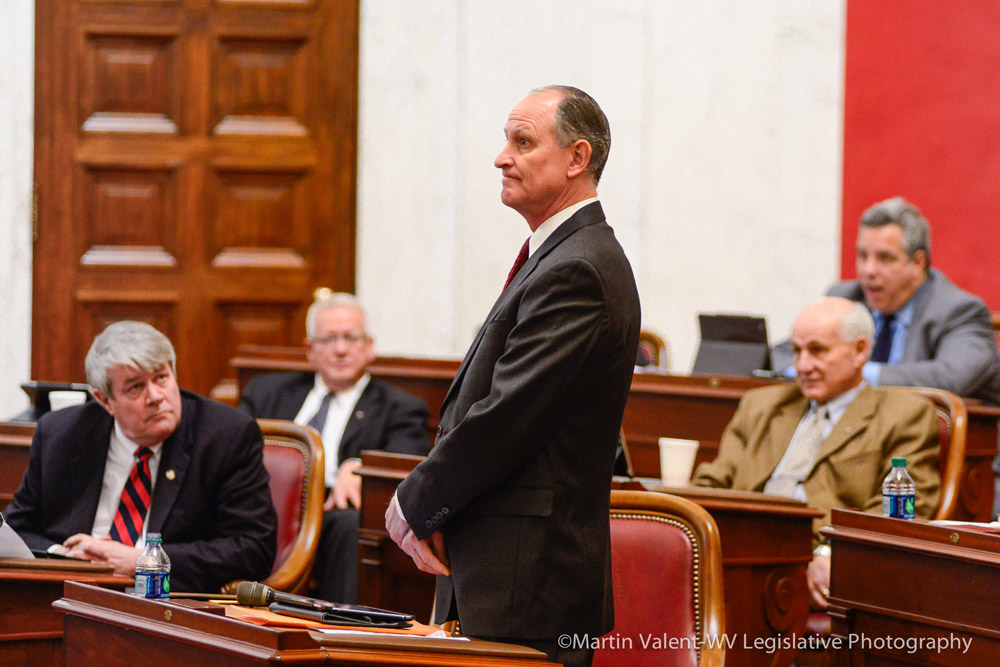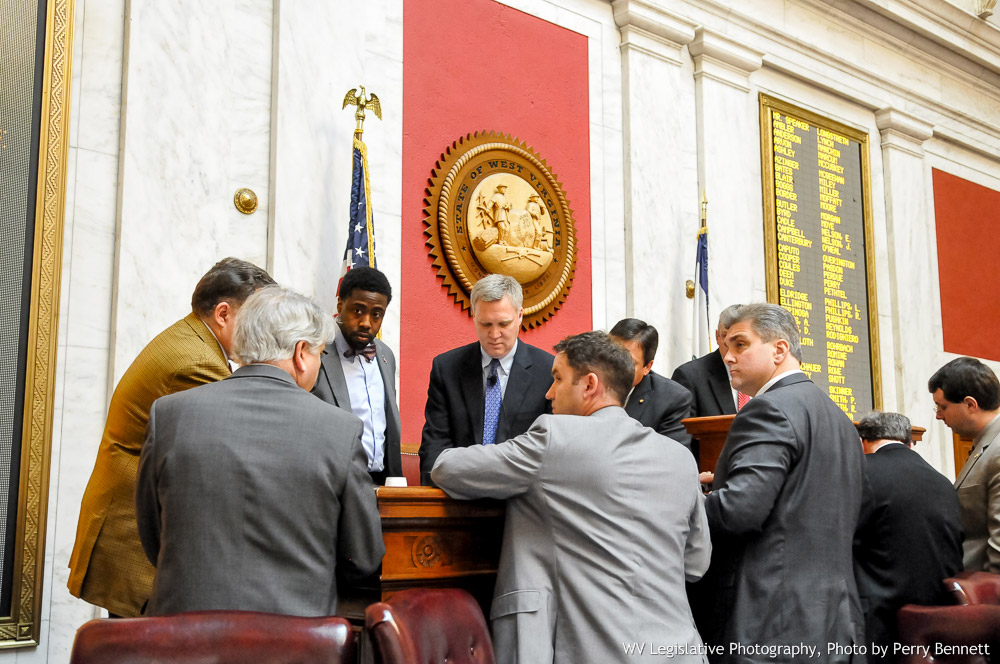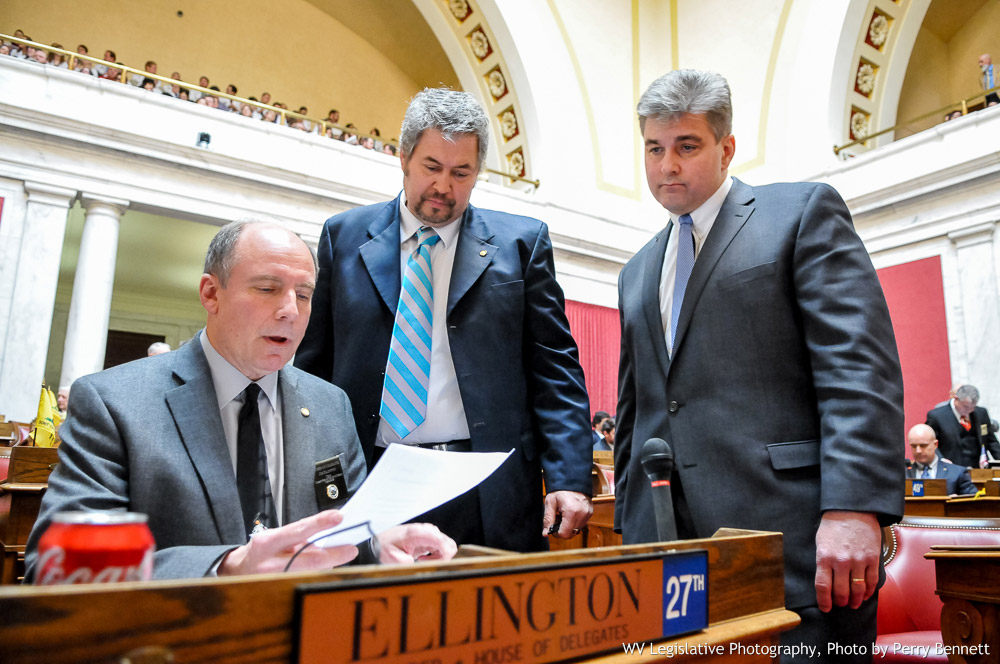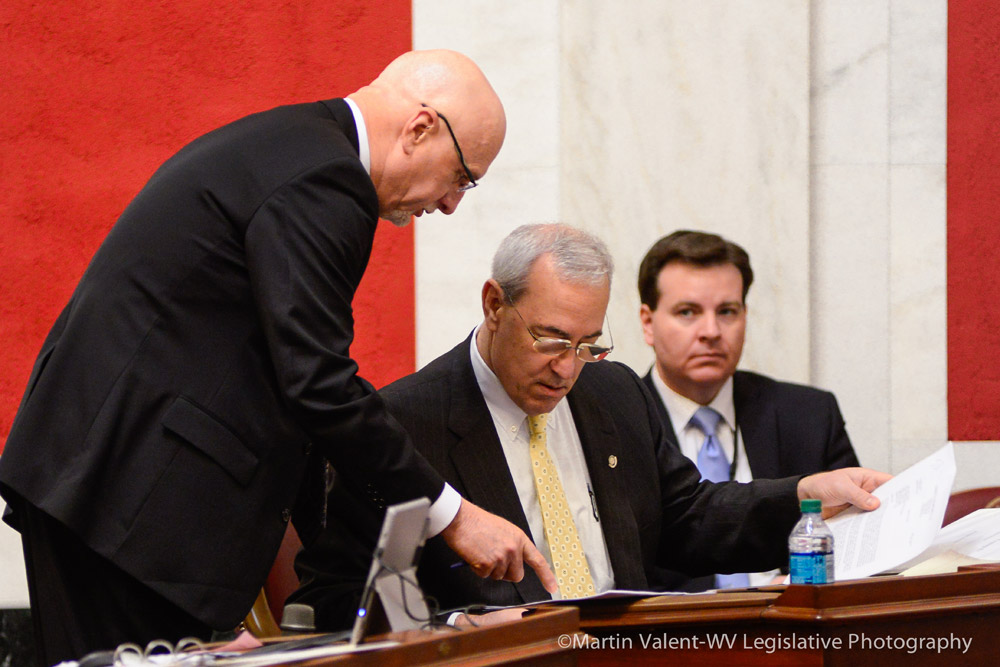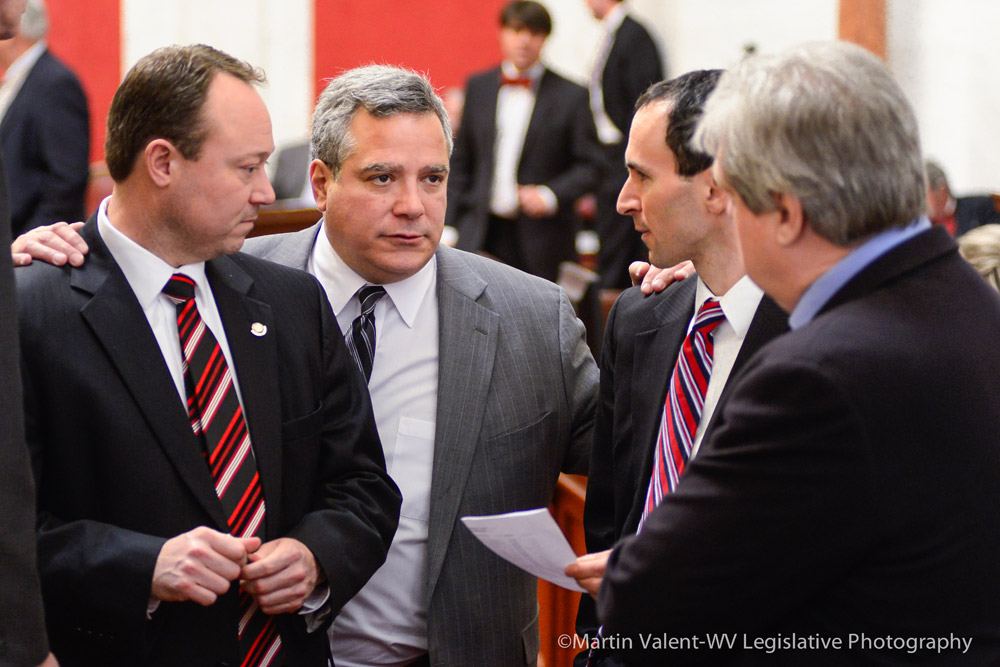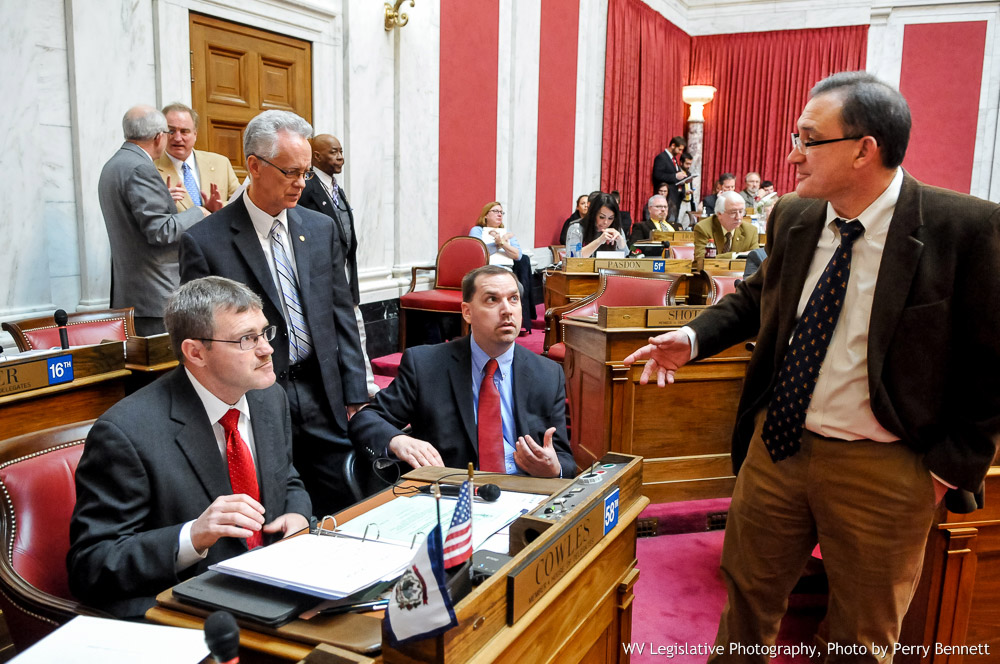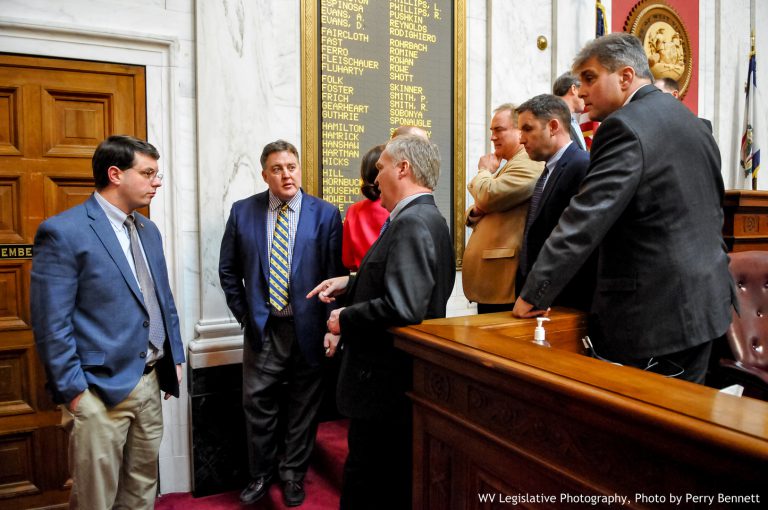House Bill 2157 concerns absentee voter ballots. It makes the crime of committing fraud on voter ballots into a felony. Any person who obtains, removes, or disseminates an absentee voter’s ballot, intimidates an absent voter, or completes or alters an absentee voters ballot will be held guilty of the crime. Penalties include a jail sentence of 1 to 5 years, a fine of $10,000 to $20,000, or a combination of those two.
House Bill 2212 would change the amount of severance tax annually dedicated to the West Virginia Infrastructure General Obligation Debt Service Fund. The amount of tax will be reduced from $23 million to $22.5 million. This fund is used to pay the general debt of the infrastructure spending in the state.
House Bill 2387 will attempt to bring about a comprehensive change in leadership standards in the schools of West Virginia. The process will involves broad stakeholder input under the State Board of Education to the Legislature and Governor. The bill lays out qualities desired by leadership of schools such as developing shared values between leadership and staff, high expectations, and shared responsibility for the results of students. Areas for recommendation include roles and responsibilities of principals, support and tools needed, pipeline for leadership development, and support systems and flexibility among other items.
House Bill 2606 clarifies language regarding the potential sentence for disorderly conduct. The bill changes the phrase of “committed to the custody of the Division of Corrections” to “confined in jail”. This aims to make clear that those sentenced of disorderly conduct are placed in a jail cell and may not be placed elsewhere.
House Bill 2391 authorizes the state board to annually grant a waiver to a county board to implement a full day early education childhood program that has four days instead of five days. This would allow the fifth day to then be used for staff to work on program delivery to improve student learning. The request for a waiver must have the support of a majority of the participating families. The current statute requires the programs to be available full day, five days per week. The bill also imposes minimum instructional hours per week and minimum instructional days per year.
House Bill 2527, also known as “Erin Merryn’s Law”, would establish a Task Force on the Sexual Abuse of Children. The bill designates who will become a member of the task force as well as lays out a process for the selection of presiding members. It also lays out the duties of the task force which include gathering information on sexual abuse of children, creating state and county goals for prevention of abuse, and making recommendations to the state and county governments for implementation of the goals. The bill also requires the task force to consult with appropriate government agencies when appropriate to gather information on implementation of goals.
House Bill 2098 would authorize health care professionals providing services to federal veteran’s affairs facilities in the state without having to obtain a license from the state licensing board. Those who already have the ability to practice in federal facilities would be able to practice at the state’s veteran’s affairs facilities without having to obtain a different license. The bill aims to allow swifter care and cut down bureaucracy.
House Bill 2100 creates the Caregiver Advise, Record, and Enable Act. This would allow hospital patients to designate a lay caregiver to provide aftercare assistance in the patient’s residence. The bill aims to give more patient choice in their aftercare providers by helping them select workers they are more familiar with and caregivers that know their patients’ medical situation.
House Bill 2535 relates to suicide prevention training. The bill aims to expand the number of people who are trained in suicide prevention in order to maximize the possibility that at risk children and adults can be saved. The bill will mandate that school care personnel from the middle school to college level are trained in suicide prevention and provide that literature on the subject is handed out to children and young adults. It will also provide that discussion about preventing suicide occurs and that mental health information is readily available. All licensed medical professionals will be required to obtain suicide prevention training as part of their training.
House Bill 2586 will allow for an alternative form of service of process in actions against nonresident persons by petitioners seeking domestic violence or personal safety relief. The bill provides the process of legal action that can be undertaken. It allows nonresidents to be forced to appear in court among other functions. It also provides definitions for nonresidents and duly authorized agents.
House Bill 2607 clarifies the penalties of those who violate or interfere with the communications of emergency services. It notes that those who are penalized can both be fined and jailed for the crime. It does this for each number of repeat offenses as well.
House Bill 2646 would legalize and regulate the sale of Class 3 fireworks. This would allow these type of fireworks to be commercially bought and sold with regulations administered to the purchases of these fireworks. The bill also creates a West Virginia Veterans Program Fund and imposes a special fee on the sale of these fireworks. The money collected from the fee will be used as proceeds for the Veterans Program.
House Bill 2702 would redefine the service personnel class titles of early childhood classroom assistant teachers to smooth the transition of former early childhood aides to this new classification of school service personnel. The changes include protections from reduction in force or transfer for these aides eligible for full retirement benefits before July 1, 2020 to create vacancy for less senior early childhood classroom assistant teacher; requiring an aide who becomes employed as early childhood classroom assistant teacher to hold certain multi-classification status; and including early childhood assistant classroom assistant teacher in same classification category as aides.
House Bill 2492 would repeal the requirement that an entity charging admission to view certain closed circuit telecast or subscription television events needs to obtain a permit from the State Athletic Commission and report certain information. The bill would make it easier and less costly for these broadcasters to show events that they are already legally allowed to broadcast.
House Bill 2726 would clarify choice of laws issues in product’s liability actions. It changes the products from just being pharmaceutical drugs to being all products. The intent is to prevent nonresidents from using West Virginia court systems as a favorable system to issue liability law suits.


